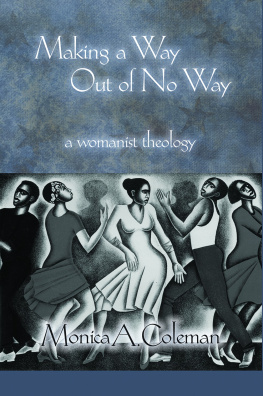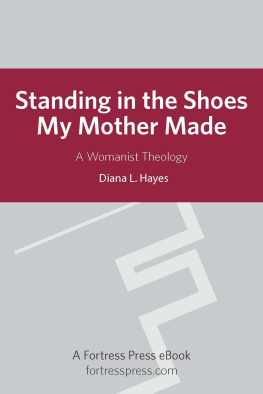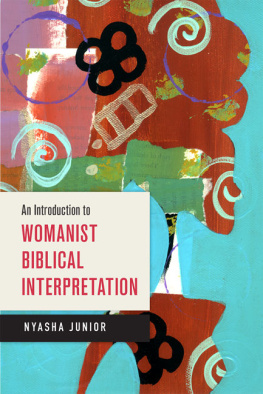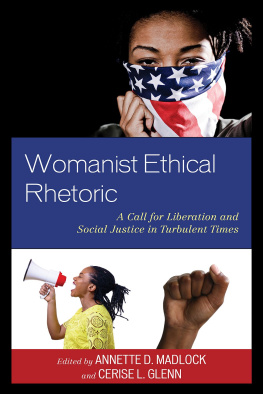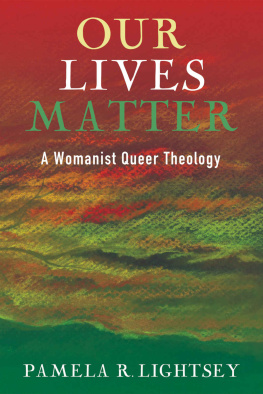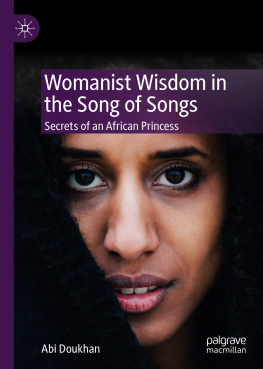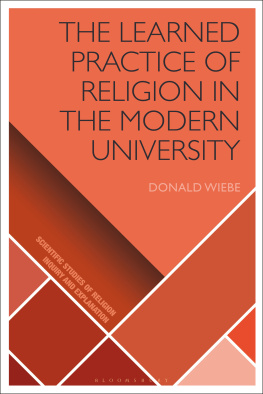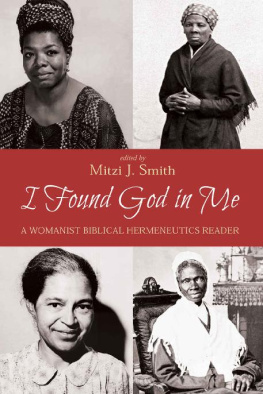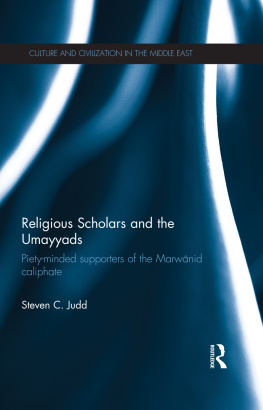Acknowledgments
This volume started as a small idea in an article I began writing in 2004 in the midst of lively conversations with Karen Baker-Fletcher about black feminism and womanism. The conversations took form in my essay, Must I Be Womanist? in Journal of Feminist Studies in Religion (2006). The editorial staff of JFSR was amazingly supportive in offering me space, validation, and interlocutors as I worked through these ideas. For years, Melanie L. Harris was a lively conversation partner, encouraging me to give more attention to the concept of a third wave in womanist religious scholarship. Likewise, Victor Anderson also pressed me for greater specificity about this concept. Layli Maparyan has been a sister-comrade for decades now, and keeps me from staying in the religious studies bubble.
Ivan Petrella, more than anyone, encouraged me to put these ideas in a book-length volume. He asked about my own sense of vision and community, lending his name, energy, and effort to the concretization of the ideas.
To the colleagues who teach Must I Be Womanist? or stopped me at a conference to encourage me, I thank you for the added energy to do this kind of volume.
All the contributors of this volume put in time, travel, and most importantly, their research in becoming a part of this project. I appreciate your support, your scholarship, and your friendship. I did my best to present your unique voices and fascinating work. I hope you all feel good about your role in this book. I hope that this work draws the circle wider, rather than circumscribes, the discourse we all have joined.
This book is largely the outcome of my inaugural lecture and conference at Claremont School of Theology (CST) in February 2010. There were many people who worked to make this endeavor a reality: my deans at CST, the late Susan L. Nelson and Philip D. Clayton; CST president Jerry Campbell; then-dean of the School of Religion at Claremont Graduate University Karen Torjesen; Bishop Charles Wesley Jordan, Elaine Walker, Gamward Quan, Lynn OLeary Archer, Duane Dyer, Gary Oba, Lisa Marcia, Donna Porras, Sansu Woodmancy, Mark Whitlock, Trina Armstrong, Jon I. Gill, Richard Newton, Theresa Yugar, Paula McGee, John Erickson, Deidre Green, Janis Brown, Vera Alice Bagneris, Jon Hooten, David Musick, Jared Reeder at Question Mark to Period, Elonda Clay, Raedorah C. Stewart, Jason Taylor, Charles Dorsey, Garlinda Burton, and Anne C. Walker. Financial assistance came from: Southern California Edison Foundation, the Wabash Center for Teaching and Learning in Theology and Religion; Womens Studies in Religion at the School of Religion at Claremont Graduate University; the Pat Reif Memorial Lectureship; Process and Faith; Center for Process Studies; Commission on the Status and Role of Women in the California Pacific Annual Conference, United Methodist Church; Henry Jefferson; Kenny and Michelle Walden; Gary Oba; Bishop Charles Jordan; Kim-Monique Johnson; Cornish R. Rogers; Karen Clark Ristine; Nancy L. Jones; African American Clergy Women in the California Pacific Annual Conference, United Methodist Church. I had the time to organize this conference because I was on a sabbatical leave with significant support from the Career Enhancement Fellowship for Junior Faculty from the Woodrow Wilson National Fellowship Foundation.
I thank Katie G. Cannon and Anthony B. Pinn for their ongoing support of both this project, specifically, but more so their commitment to giving space to novel voices in black and womanist theologies. I appreciate their confidence in the future of the field we love, and in my voice in the conversation. I am grateful to the entire editorial team at Fortress Press with whom I worked on this book: Michael West, David Lott, Susan Johnson, Will Bergkamp, Lisa Gruenisen, Marissa Wold, and the production team at Fortress Press.
Words cannot express my gratitude to Monica R. Miller and C. Yvonne Augustine, who served as assistants (in different phases of this project). Tireless, invested, and capable, they carried the details and minutiae with excellence, skill, and graceespecially in the seasons when health challenges slowed me down. To my lifes partner, Michael Datcher, whose love and camaraderie undergird me no matter the details of the projectI owe to you my sense of humanity in the midst of work.
Foreword
Layli Maparyan
Repeatedly, Thurman asks, How can I believe that life has meaning if I do not believe that my own life has meaning? Thurman poses this question/affirmation to stress how ones autobiography is connected to spirituality. Whatever one seeks to discover about the meaning of life in general must take into consideration how such meaning is found in ones own life.Luther Smith
... it was the first time that I could be all of who I was in the same place.Barbara Smith
Womanism stands out as a liberatory spiritual praxis because of the depth to which it honors the personal spiritual journey. In the early twenty-first century, we find ourselves at a place where, if popular polls can be believed, at least in the United States of America, large segments of the population have rejected traditional, mainstream religious adherence in favor of various hybrids of spiritual belief and practice that embrace multiple religious threads and even various forms of secularity. Some people claim multiple religious affiliations, while others simply identify as spiritual but not religious. Many people question the faiths into which they were born, the faiths of their parents and ancestors. Some leave for good; others leave, then come back with a different perspective and renewed passion. Still others create highly idiosyncratic hybrids by bringing additional faiths or philosophies into their core religionor dispensing with a core altogether. For many people, the new normal is, I am the organizing principle of my own spirituality.
In the beginning, the womanist tradition in religious studies came from a place of deeply self-respecting reflexivitya place of respects herself, regardlessagainst the backdrop of religious histories of gender-, race-, and sexuality-based exclusions and oppressions. The question posed seemed to be, how do I need to relate to this faith and its institution in ways that respect me and my community? Also, how can I forge new pathways (


